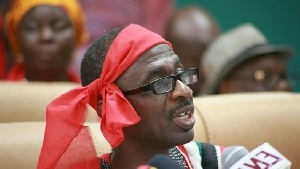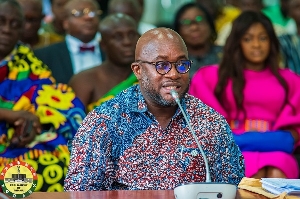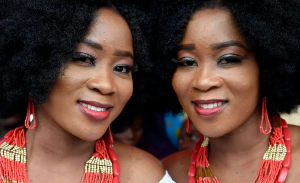Opinions of Wednesday, 23 August 2023
Columnist: Isaac Ofori
The dichotomy of faith and inclusion: Examining religious leadership and LGBTQ moralities in Ghana
As the world undergoes transformative changes, Africa—particularly Ghana—has become a focal point for critical discourse on religion and social inclusion. Traditionally, religion has been a cornerstone of moral virtues such as empathy, compassion, and love. However, recent developments indicate a troubling trend: certain religious and civil leaders are leveraging their influence to marginalize individuals based on sexual orientation.
A prevailing narrative has emerged, linking the LGBTQ community to apocalyptic prophecies and doomsday scenarios. This narrative is further complicated by the belief that the inclusion of LGBTQ individuals in Ghanaian society would undermine traditional family values. The argument posits that heterosexuality is an integral part of Ghanaian culture, and any deviation from this norm jeopardizes the social fabric.
In response, some religious leaders, supported by like-minded parliamentarians, are advocating for legal frameworks to enforce what they perceive as divinely mandated morality. This approach raises serious questions about these leaders' commitment to global norms of inclusivity and non-discrimination.
The situation begs the question: Do these religious leaders genuinely misunderstand the foundational tenets of their faith, or is there a calculated misrepresentation at play? Most religious doctrines advocate for universal love and acceptance, irrespective of one's perceived flaws or sins. The current trend of ostracizing specific groups contradicts these core principles, suggesting that the faith may have fallen into the hands of ill-suited custodians.
The ultimate objectives of these religious leaders remain unclear. Are they aiming to cleanse the nation of perceived immorality, adhere strictly to their religious doctrines, or engage in a misguided "holy war"? Their strategies appear inconsistent. Rather than utilizing the transformative potential of their spiritual teachings to address LGBTQ-related issues, they are resorting to legislative means.
This incongruity reveals that the campaign against the LGBTQ community is more likely rooted in prejudice than in authentic religious doctrine. If these leaders fail to acknowledge that moral imperfections are an inherent part of the human condition and that legislative action is not a panacea, their efforts are not only futile but also damaging.
In essence, they are signaling a disheartening message to the world: instead of striving to reform and uplift, they have seemingly abandoned those they ‘categorize as sinners’ and given them up as prey of persecution. In essence, these religious leaders have not only let down the LGBTQ community in Ghana but have also fallen short of the principles they claim to uphold in their faith.
In conclusion, the current state of affairs in Ghana presents a complex interplay between religion, law, and social inclusion. It serves as a cautionary tale, urging us to scrutinize the motivations and actions of those who claim to be the moral compass of society.













